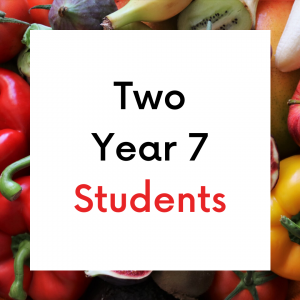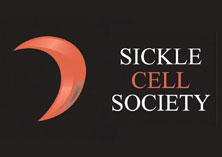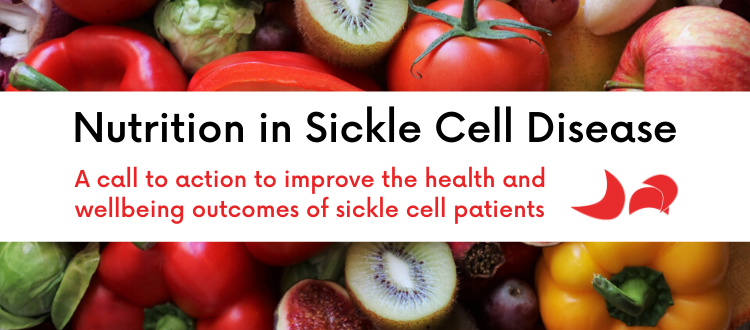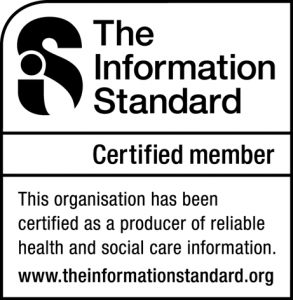Nutrition in Sickle Cell Disease
Nutrition in Sickle Cell Disease: a call to action to improve the health and wellbeing outcomes of sickle cell patients!
By Claudine Matthews RD, MSc, PGCE, FHEA
Introduction:
Sickle Cell Disease (SCD) is a genetically inherited red blood cell disorder and historically managed with a medical model approach. The nutritional implications of SCD, is a direct consequence of the pathophysiology of the condition, and is overlooked, underused and under-developed. Currently nutrition is not integrated into sickle cell healthcare provision.
Poor knowledge and the lack of integration of nutrition into sickle cell healthcare provision is the underlying cause of the disempowerment experienced by many service users, cares, service providers and stakeholders including health planners.
In qualifying this statement, I will share personal accounts written by people from the groups mentioned about why nutrition in sickle cell is important to them. In sharing these personal accounts my hope is simply to raise awareness of the value and importance of the role of nutrition in sickle cell, with over 60 years of scientific literature to back it up.
A call to action:
The reality however, and the main stumbling block to innovation and change, is the lack of translation of the existing scientific literature into meaningful evidence base. For this reason, it is not enough to simply have national nutrition standards, although this is a very important first step in the right direction. More action is needed. My Doctorate alongside many others, is aimed at doing exactly that! Enabling action for change!
But first let’s listen to the voices of the people directly affected by the disempowerment associated with poor nutrition knowledge and the lack of integration of nutrition in sickle cell disease. These voices not only highlight the challenges associated with neglecting nutrition in sickle cell but provides helpful suggestions and encouragement to make small changes to your eating habits that may have a positive effect on your health experience and health and wellbeing outcomes.
Enabling action for change:
Below is a personal account from two sickle cell service users and a dietitian. There is also a summary written by two year 7 girls, summarising what they learnt about sickle cell after my presentation on sickle cell for black history month, October 2019!
 1. George – 15-year-old sickle cell patient
1. George – 15-year-old sickle cell patient
The following account was written by George describing and sharing helpful tips about his eating habits that has had a positive impact on his health and wellbeing outcomes:
“As a patient of sickle cell, myself I can understand how difficult the disease can be however, don’t let this distract you from taking care of yourself. The simplest way to help yourself is by eating properly. I underestimated how important this was initially but now I understand. Healthy eating doesn’t necessarily mean you are eating things you don’t like or eating a lot of salads. I myself have gained the benefits of eating well without even touching a salad. Healthy eating has actually made me eat food I have found more enjoyable.
The main factors to a good diet are making food which promotes good health and also foods which tastes good, so you are motivated to eat it. I myself am only 15 turning 16 and I don’t rely on my parent to cook food for me. All the food I eat is fully prepared by myself. Obviously if you don’t wish to cook, let your parents know the type of foods you need to be eating in order to stay healthy. My first meal in the day will either be cereal or eggs and beans. I prepare my eggs with onions and tuna and I use various different seasonings to make it taste nicer.
You need to find out what you think tastes right. For example, if you like sweet corn, you can add sweetcorn to this meal. Eggs and beans are important as they provide protein which is the key factor you must be focusing on in your diet. You need to always be thinking about how much protein you’re taking in a day; protein is the building blocks of being healthy as your body needs more protein. After I eat my morning breakfast, I then proceed to eat some cous cous. I prepare my cous cous with quorn chicken as it is a good source of protein and doesn’t take as long as normal chicken would to prepare. I put them together adding a tiny tiny bit of BBQ sauce to give it a better texture and flavour.
This meal is good as it gives you even more protein and other valuable nutritional benefits. The last meal I will have in the day varies. Sometimes I make curry. Sometimes I make pasta, sometimes I make chill sauce, sometimes I make Chinese sweet and chilli, sometimes I make Chinese fried rice. These meals can seem intimating to cook at first glance but trust me, it is something which really isn’t that complicated. The steps of each meal are very similar, you mainly just cook the chicken and then you put the sauce over it, it is that simple. I also tend to add some seasonings mainly just chicken magi and garlic and a hint of curry powder. I also add some peppers which are frozen initially which I just put in hot water. Lastly, I add it to the chicken, when the chicken is fully cooked.
The main part of these meals I have during this time is the chicken, I have chicken everyday. I also make my food in blocks so I don’t have to cook every day. I can simply just microwave the food on some days. My food tends to last around 3 days until I have to cook something else. I tend to eat 3 big meals throughout the day so I don’t feel hungry. I also drink a lot of water as sometimes you may feel hungry but it’s actually you being thirsty. When you feel hungry, you tend to resort to snacks such as crisps, biscuits and sweets. These foods have no gains to you. It is just putting trash in your body, obviously you can still have these foods however, you want to limit yourself to having these snacks to around once a week or if you can, even once every two weeks.
Instead you want to replace your snacks which you have throughout the day with foods like yoghurts and cereal bars or foods like fruits such as apples. You can even have some apple juice anything is better than crisps and biscuits. By doing this you will see drastic changes to your body. For me my blood levels used to be low however now my blood levels shot up to the point it was very very close to a normal healthy person, without sickle or any disease. I have felt these changes myself. I feel a lot more energetic and I feel a lot more comfortable, everything is easier. You feel good about yourself and just feel a lot happier in general and relaxed.
Even things like going to the toilet have become a lot easier. I am enjoying the food I eat and at the same time I am eating healthy and I am becoming a healthier person. I encourage you guys to experiment with the things you eat. Go to the shop and have a look around, look at the nutritional gains of everything and find foods which you believe tastes nice and are also healthy. Try new foods which you haven’t tried before and just make smarter choices to what you may have decided to put in your body before. Eventually you will get into the habit of eating healthy”.
 2. June – adult sickle cell patient
2. June – adult sickle cell patient
“Nutrition is a way of life. Personally, I feel nutrition enhances my health and wellbeing with a good sense of balance through food and drink choices. Nutrition has also been a journey of my growth socially, physically and emotionally as I began to eventually understand what types of diets gave me the nutrients, I needed to manage my chronic condition. For example, I know what to eat when I feel anaemic or have chronic fatigue or when I am in pain. I also use nutrition as a source of prevention of ill health and general self-care. Nutrition to me is about balance. Focusing on the diets that improves my health, and never depriving myself of any sorts of food I enjoy but with a greater focus to eat cleaner, healthier, fresher and more Mediterranean style diets”.
 3. Chloe – paediatric dietitian
3. Chloe – paediatric dietitian
“Nutrition is unfortunately one of the most under-recognised treatments in managing and treating sickle cell disease patients. Patients with sickle cell disease have a greater red blood cell turnover, increased energy requirements and increased protein turnover. This leads to an increased risk of becoming malnourished or anaemic. If left untreated then this can lead to further complications such as longer hospital admissions, impaired immune response, reduced muscle strength and poor clinical outcomes to name a few. Many complications that are associated with sickle cells disease have a nutritional underlining cause, which if given adequate nutritional interventions, could have been prevented”.
 4. Two Year 7 Students
4. Two Year 7 Students
“I feel sad because sickle cell disease is a very serious condition. It could possibly take someone’s life. Sickle cell is a genetically inherited red blood cell disorder and it is also the fastest growing genetic disease in the UK (15000). At the moment there is no cure for it, but there are ways to manage it. To help manage the disease you would need to eat a lot more and also eat lots of protein (to build back the blood cells and also repair all the damaged ones). Vitamins would also be needed to keep healthy. The red blood cells change shape as it is deoxygenating (sickling) then vascular obstruction which blocks the blood vessels and damages the cell and tissues then the organs fail to work. The red blood cell in sickling only lasts 16 -20 days during the deoxygenating process. The causes of sickle cell would make it common for you to have delayed puberty and strokes”.
In summary:
These personal accounts are a call to action to address the disempowerment associated with poor nutrition knowledge in sickle cell! The time has come to take a different approach to reconsider the role of nutrition in sickle cell healthcare provision, to work towards integrating nutrition into sickle cell healthcare provision. However, it will take a collective interest and action, to activate change!







Great write up. Can I have a list of foods that helps patients with sickle cell?
This is a brilliant article, which has really left food for thought (excuse the pun).
Any further suggestions of clean healthy foods would be greatly appreciated.
This is a fantastic news as also a sickle cell patient I can confirm this is correct. I am looking for full menu for sickle cell patients. Mon – Sunday which includes breakfast, lunch and dinner. Any help will be very much appreciated. Thanks
This is a good intro but do you have a list of food items that help someone with sickle cell as I believe this is so important?
Thank you for the writeup. Could you share a list of foods that are important to include in the diet of someone with SCD.
Thank you
FernandoAgramonte1@gmail.com
Nutrition is the process of taking in healthy food and using it for growth, metabolism, and repair. In the form of food, we take nutrients: macronutrients and micronutrients.
Macronutrients are carbohydrates, proteins, fats and water. And micronutrients include minerals such as calcium, iron, iodine, vitamins and antioxidants.
Very interesting write up